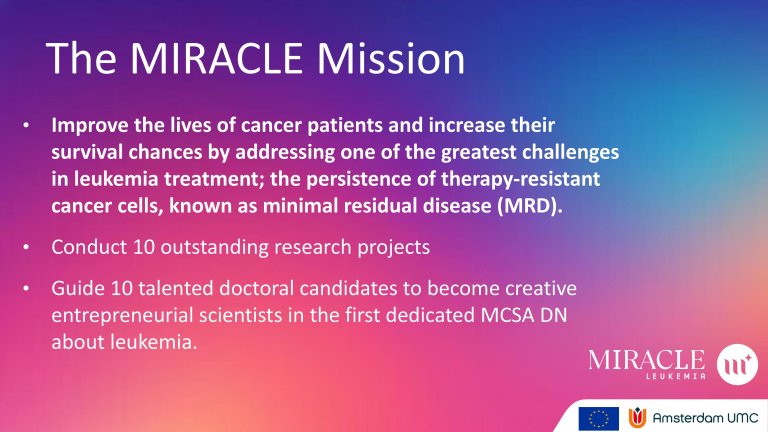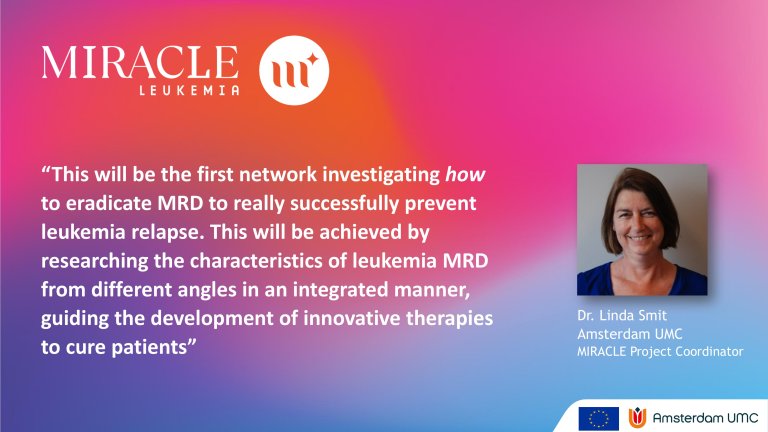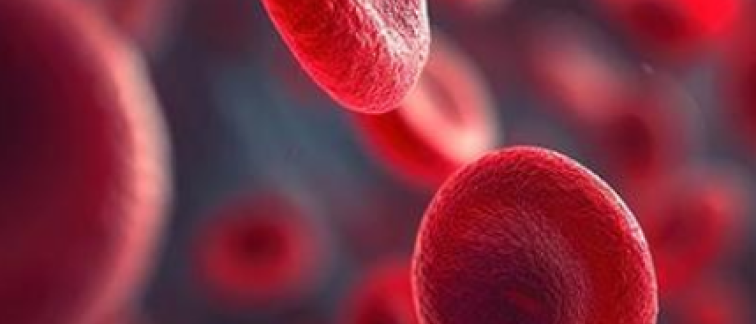MIRACLE-Leukemia will address one of the greatest challenges in leukemia treatment; the persistence of therapy-resistant cancer cells, known as minimal residual disease (MRD).The Doctoral Network of 10 PhD students will tackle the problem of MRD in an integrated collaborative effort to prevent MRD-induced leukemia relapses and to drastically increase survival chances of leukemia patients.
Despite advancements in cancer research, a lack of understanding of the mechanisms behind MRD persistence and relapse has hindered progress in developing effective therapies. Adding to this challenge is the fragmented expertise on MRD across Europe and a lack of multidisciplinary scientists capable of integrating insights from transcriptomics, epigenetics, metabolism, and immunology. Moreover, there has been thus far no dedicated doctoral training program tackling the problem of leukemia MRD.
By employing 10 highly talented doctoral candidates, the MIRACLE-Leukemia consortium aims to execute cutting-edge studies in several academic and industrial institutes while training the PhD students in multidisciplinary and transferable skills. The 10 researchers will work on individual research projects and benefit from a comprehensive program that contains scientific, technical, and entrepreneurial training. MIRACLE-Leukemia will not only generate impactful research but also actively contribute to Europe’s Mission Cancer goal of increasing cure rates and improving the lives of cancer patients. The project aims to raise public awareness, influence policy, and create a lasting legacy in leukemia treatment.

Integrated multi-angle research and training network to eradicate leukemia minimal residual disease
The 10 research projects collectively focus on advancing the understanding and treatment of acute leukemia MRD by leveraging cutting-edge techniques such as artificial intelligence, single-cell omics, multiomic and metabolomic profiling, identification of niche-dependent MRD vulnerabilities, in vivo CRISPR-CAS9 screening and epigenetic single cells analysis.The studies aim to optimize treatment decisions, develop translational organ-on-chip 3D MRD models, and design immune-based therapeutic approaches such as CAR T cells homing to the bone marrow and directed to therapy-induced senescence, persistent leukemic blasts in Down syndrome patients, acute leukemia MRD and leukemic stem cells (LSCs). Together, the 10 researchers will address the key unresolved questions on the molecular and cellular basis of acute leukemia MRD and bridge preclinical and clinical research to come up with novel ideas on how to eradicate MRD and improve patient outcomes.
Coordinated by the Amsterdam UMC
MIRACLE is an international, multidisciplinary and multisectoral training program consisting of 23 academic and non-academic partners from 8 EU countries The Netherlands, Belgium, Germany, France, Spain, Italy, Czech Republic, United Kingdom).The project is coordinated by Dr. Linda Smit and Prof. Jacqueline Cloos of the Amsterdam UMC department of Hematology.

More information: www.miracle-leukemia.eu
MIRACLE-Leukemia is a European project funded by the European Union’s Horizon Europe’s Research and Innovation Program under the Marie Sklodowska-Curie Actions Grant Agreement nr. 101167512.

